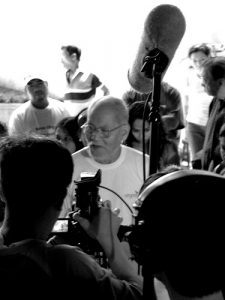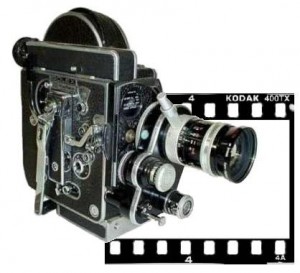
Throughout June, I’m writing about media relations. To start, I provide this post on finding the right spokesperson, followed by an interview with two reporters on how the media industry is changing, and finishing with a post on what I’ve learned in two years of running Aubia Communications.
I’ve media trained hundreds, if not thousands, of military members, civilian employees, entrepreneurs, other subject matter experts and even my own husband throughout my career. I’ve seen all kinds of quirks, such as one particular commander who looked heavenward every time he answered a question, reminiscent of someone praying for the right answer. Some seemed born to be a spokesperson whereas others needed lots of practice before they ever faced a reporter. Having the right spokesperson at the right time is crucial for a successful media relations program.
How to choose the right spokesperson
A spokesperson is someone who puts a face to an organization, event, issue and/or program. This person is the visual and audible representation to the public. In Judith C. Hoffman’s Keeping Cool on the Hot Seat, she suggests the right spokesperson is:
1. Accessible
A spokesperson may be called upon with a moment’s notice, especially in a crisis. He needs to be able to respond in the same quick time frame.
2. Willing
I once had a soldier who “voluntold” for an interview with the local newspaper on the screening of a military documentary. For those not familiar with this military vernacular, the soldier would have probably preferred undergoing a root canal than do this interview. I cringed when he explained to the reporter how he would have liked to “slap civilians” and, of course, was quoted in the story the next day. If someone doesn’t want to do the interview, it will show through in shining colors in the product.
3. Coachable
There is a delicate balance between a selected spokesperson who is terrified about going on the record and one who is too anxious to see his name and face in the bright lights. You want someone open to advice, agreeable to constructive criticism, and prepared to make changes if necessary.
4. Assertive
A spokesperson needs to be agreeable and resonating for the audience, but at the same time, he must also be forceful enough to correct any misconceptions. When members of the media ask tough questions or use tricks of the trade, the spokesperson needs to have the confidence to stand his ground.
5. Appropriate
Imagine placing a gruff and surly spokesperson in front of the cameras when the company is facing criticism for lack of sensitivity to the plight of underpaid workers. Or, what if the media finds out your organization’s spokesperson is facing charges of discrimination while speaking about the importance of minorities’ contributions to the workplace? As the representative of your organization, leadership should be able to take pride and back the spokesperson without concern.
6. Calm
Though any media interaction can be stressful, a credible spokesperson should appear cool and collective during an interview regardless of how he feels on the inside. If the spokesperson is visibly shaken, this can erode trust and open the media’s shark attack.
7. Knowledgeable
Many times a subject matter expert, someone with the technical knowledge to discuss a complex issue, is tapped as the spokesperson. This person can go into greater detail about the subject and provide the back story. Whoever is chosen as the spokesperson needs to have a thorough understanding of the organization and be able to intelligently speak on the subject matter of the interview. Though it’s OK to not know an answer to a question and get back with the reporter later, it’s not acceptable to not know most or any of the questions.
8. Quick
Not only should a spokesperson be able to clearly and logically deliver a statement, he must also be able to think on his feet. When he’s thrown an unexpected question, a good spokesperson should be able to avoid the deer-in-the-headlights look and respond effectively.
What makes a great spokesperson?
The job of a spokesperson is not for the faint of heart. It’s hard work and takes much practice. What other traits do you think makes a great spokesperson?



